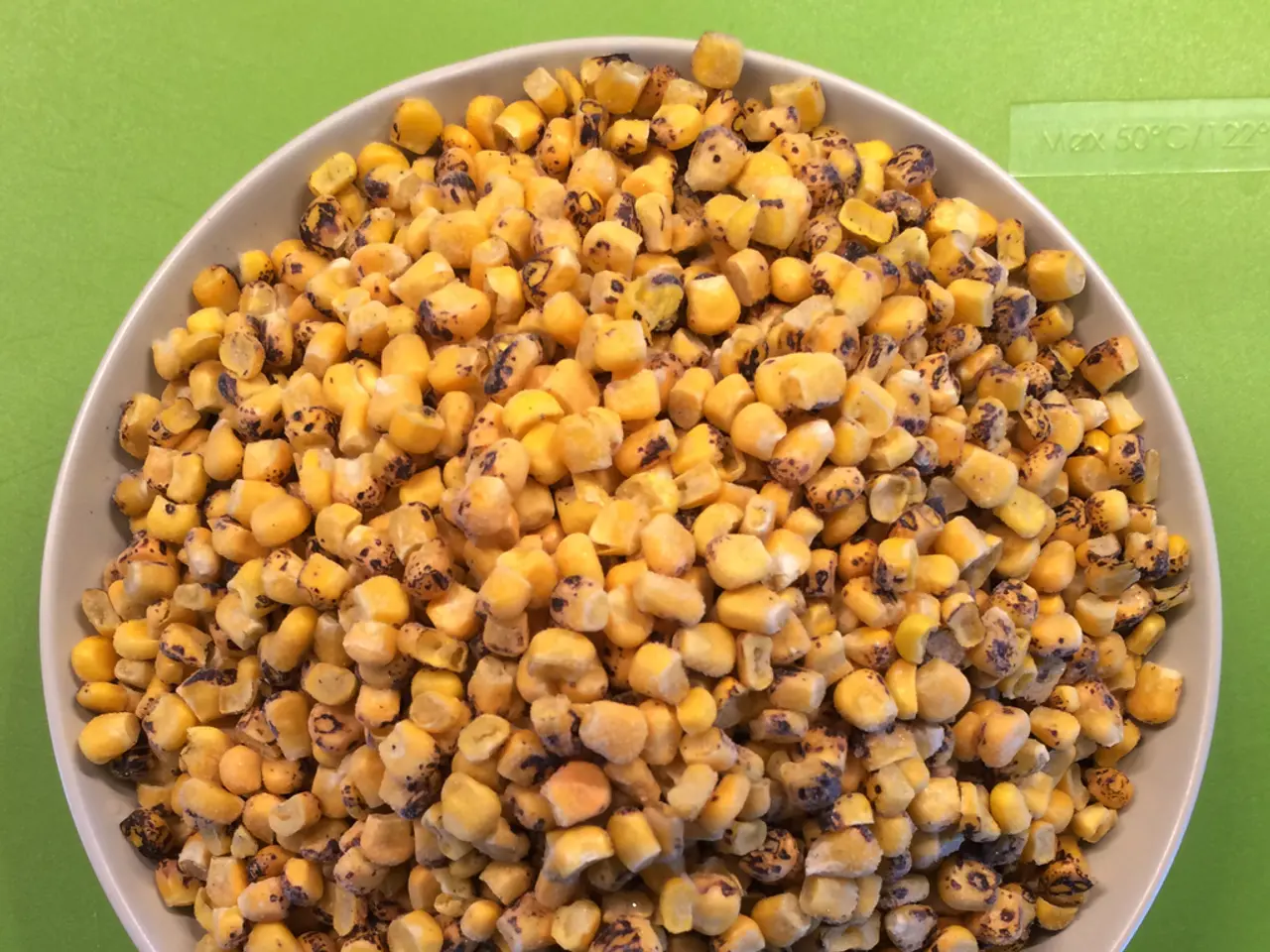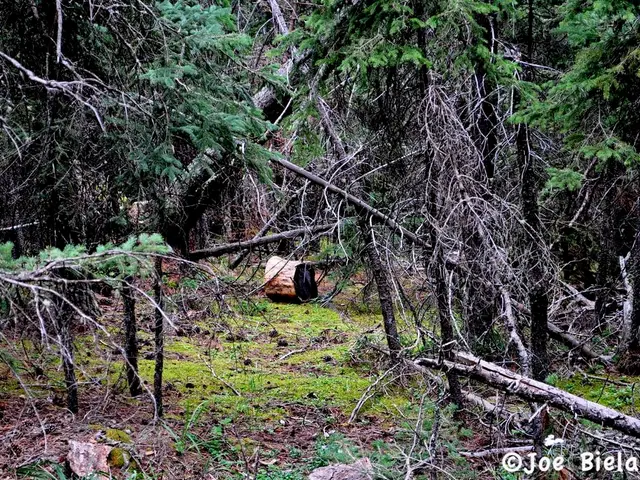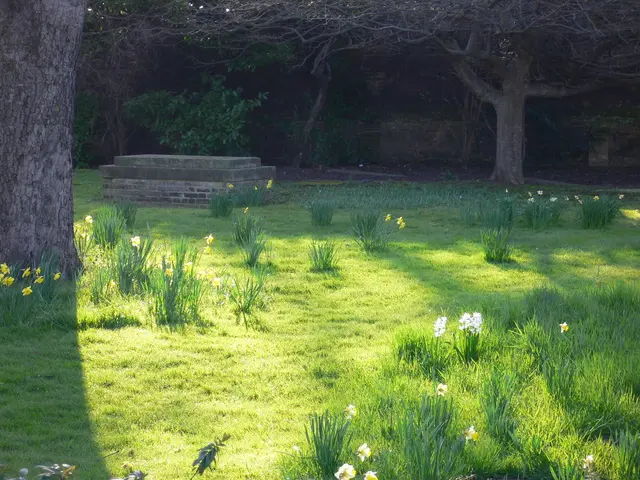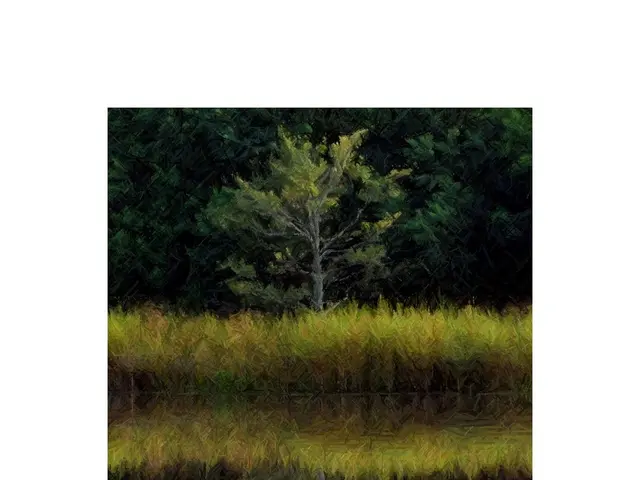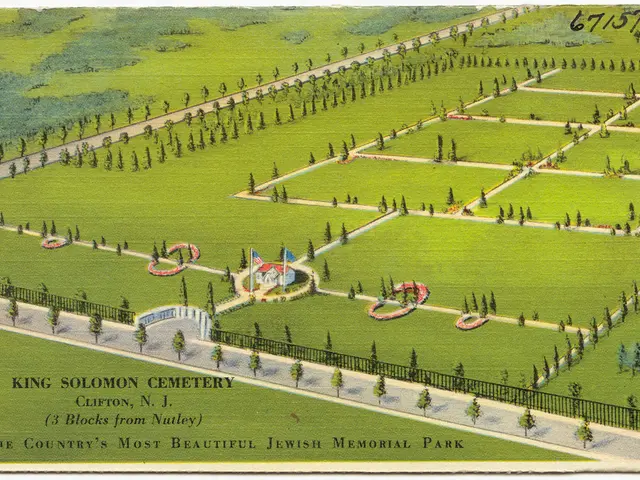Top Picks for Corn's Perfect Plant Partners (Steer Clear of These Harmful Combos)
Readyto spice up your summer harvest with some wise plant pairings? Here's the lowdown on the top 11 best buddy plants for corn, plus a few ones to avoid.
Get your garden groove on with:
- BeansBeans and corn are garden BFFs! Beans are nitrogen fixers, meaning they contribute essential nutrients to the soil, giving your corn a solid foundation for growth. Pole bean plants also love using corn stalks for vertical support, which is a win-win situation!
- BorageThis herb's lovely blue flowers act like a charm, drawing in garden helpers like pollinators and beneficial insects. Borage's scent also sway away pesky garden invaders, keeping your corn delicious and free from damage. Check out our guide on growing borage and reap its benefits!
- CucumberCucumbers, with their sprawling vines and large leaves, create a living mulch under corn. This helps to suppress weeds, conserve soil moisture, and give your corn plants the light and space they crave.
- DillAs an aromatic herb, dill keeps pests like corn earworms at bay, leaving your precious corn untouched for a bountiful harvest. It also attracts beneficial pollinators to help other fruiting crops pollinate successfully.
- MarigoldA bright and beautiful addition to any garden, marigolds ward off a wide range of pests with their vibrant blooms. Say goodbye to aphids, Japanese beetles, and more with these cheery flowers around your corn patch. Check our guide on growing marigolds and add some pops of color for extra protection!
- MelonMelons play the same role as cucumbers, working together to suppress weeds, conserve soil moisture, and provide a tasty summer treat. Take a bite out of garden success and enjoy a mouthwatering cookout with both corn and melon on the menu!
- MintDeer and other pesky, nibbling creatures tend to shy away from the strong fragrance of mint and family members such as sage and hyssop. Plant a few pots of mint around the corn patch to keep those pests at bay!
- NasturtiumThese charming flowers deter a variety of insect pests, from tiny aphids to beetles, keeping your beloved corn safe from harm's way. Opt for climbing vines for some ground cover or choose dwarf varieties for small spaces - either way, nasturtiums are excellent protectors for your corn garden!
- PeasLike beans, peas are nitrogen fixers, providing essential nutrients to corn. Instant bonus points for planting peas first and then corn a month or two later: thanks to this succession planting, your corn gets a bit of shade and the peas enjoy a long growing season!
- ThymeA hardworking herb with a strong aroma, thyme discourages invasive corn earworms from invading your corn patch when planted nearby. Make sure to contain thyme in a pot handy for multiple seasons or garden uses.
- Winter squashWinter squash provides the same benefits as cucumbers and melons, but with an extra prickly bonus! The prickly vines of squash are thought to deter raccoons and other critters from munching on your corn.
Now, steer clear of these four garden no-nos for corn:
- Cabbage and other brassicas (broccoli, kale, cauliflower, kohlrabi, Brussels sprouts) do not play well with corn. These vegetables are heavy feeders and may compete for nutrients or shade.
- Eggplant and tomato share common pests like tomato hornworms, so keeping them apart helps reduce pest populations and allows for easier pest control.
- Fennel is a bit of a garden outlaw, inhibiting the growth of plants around it by stunting them. Fennel should be given its own space rather than mingled with corn.
- Tomatoes also tend to compete with corn for nutrients and sunlight, so it's best to plant them separately to ensure each crop grows strong and healthy.
By incorporating these helpful companion plants into your corn-growing game, you'll be well on your way to a bountiful harvest come late summer!
Author: Serena Manickam is a seasoned freelance editor, writer, and sustainable market gardener who grows no-spray produce and herbs in her rural Virginia backyard. She possesses a BA in environmental science and dreams of green thumbs and delicious summer evenings with cooked-from-the-garden meals. Check out her work here!
- Serena Manickam, an experienced editor and sustainable market gardener, recommends partnering beans with corn in your garden to create a symbiotic relationship, as beans are nitrogen fixers that improve soil health for corn's growth.
- For those who appreciate pollinators, adding borage to your garden can be beneficial, as its blue flowers attract pollinators and keep unwanted garden pests at bay, helping to protect your corn.
- By combining cucumbers with corn, you create a living mulch under corn, which helps conserve soil moisture, suppress weeds, and provide the light and space corn plants crave.
- Dill, an aromatic herb, contributes to corn's protection by discouraging corn earworms and attracting beneficial pollinators for successful pollination of other fruiting crops.
- Marigolds, with their vibrant blooms, are known to ward off a wide variety of garden pests, making them a valuable companion plant for corn.
- Mint, and other fragrant herbs such as sage and hyssop, create an unpleasant environment for deer and various nibbling creatures, helping protect corn from being grazed.
- Nasturtiums, with their attractive flowers, deter a range of insect pests, making them ideal protectors for your corn garden.
- Peas, like beans, are nitrogen fixers that can enrich the soil and improve corn's growth while enjoying the shade of the corn plant during the initial stages.
- Thyme, with its strong aroma, helps deter invasive corn earworms when planted near corn.
- Winter squash is a beneficial addition to your corn patch, as its prickly vines can deter raccoons and other critters from eating the corn.
- Be wary of pairing corn with cabbage and other brassicas, eggplant, tomato, fennel, and tomatoes, as these plants may compete for nutrients or light, and planting them together can result in weaker crops.
By understanding the advantages of using certain companion plants, you can create a healthier, more productive, and pest-resistant corn garden, leading to a prosperous late summer harvest. Check out Serena Manickam's work for more gardening tips!
